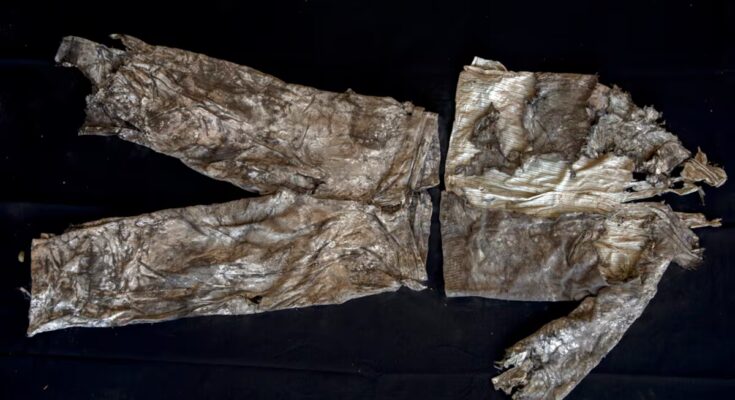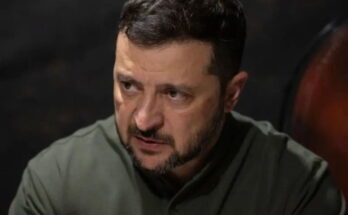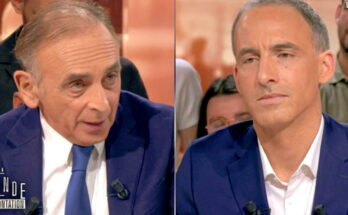My grandfather had a neat little hole in his forehead. When I was a child, I asked him many times how he did it. I slowly moved my finger closer until it touched him and asked him. And he always answered the same thing: “The Sioux did it to me with an arrow.” When someone died, perhaps my mother, his daughter-in-law, told me that during the war he had been hit by a ricochet of shrapnel. But my grandfather never said that word in front of me, nor did the dictatorship. Almost all of my grandparents died when I was young to ask some questions and I was young, perhaps, to know how to tailor the answers. And the hole in his forehead, like History, like his identity to me and, by extension, a part of mine, his granddaughter, remained in darkness forever.
His silence was not the silence of our home, that way of silence came from elsewhere, that usual answer no to the question of telling me about the war and the dictatorship widespread in millions of families of silent grandfathers and grandmothers who did not feel proud of having participated in a conflict that had become a chronic wound that had not been healed for decades. This came from the fear of repression and accusations, from a silence imposed from outside and from above. Their children, our parents, educated by that previous bond, have embarked on adult life in a brighter Spain, eager to move on and live in freedom. Left behind was a history of decades, repression and hundreds of thousands of forgotten victims. And my generation, the one that was born and raised in the same period in which democracy was conquered and to which no one told what had happened here, transformed Franco into the protagonist of an eschatological song on the melody of the national anthem.
To that natural silence another is added, with serious consequences that affect this present. It’s the silence of the schools. The lack of academic training in the contemporary history of 20th century Spain. Franco’s dictatorship was the great ellipsis of our books. The themes that recounted the Civil War nor the almost 40 years of dictatorial regime were never achieved. Sometimes they even skipped without touching and went straight to the story of a model transition that had brought a new Constitution and a parliamentary monarchy. It was said that many teachers in the 1980s and 1990s did not feel comfortable explaining Francoism because it might hurt family sensibilities and took refuge in the spirit of supposed reconciliation, which helped them remain under the protection of the official transition story.
The last silence, the most serious, is political silence. Since the death of Francisco Franco, that Spain in which we grew up, which has gone through governments of different types, some radically opposed and uncomfortable with the memory that revealed their legacies, others lukewarm in the way of naming and in its concreteness, it took 75 years after the Civil War to exhume the first mass grave, 32 years to approve the first Law on Historical Memory, 47 years from the death of the dictator to expand that law and declare the trials of the military tribunals of the dictatorship or in banning the glorification of Francoism or its leaders in public spaces. It was the year 2015, the then leader of the People’s Party, born in the same year as me, gave perhaps the most despicable answer in memory: “Those on the left are idiots, all day with their grandfather’s war, always with the tomb of I don’t know who.”
The right has always been absent from events and tributes that have to do with reparation for people who have suffered repression in this country that is theirs, establishing categories of victims. And democratic memory, which is not an abstract and empty continent, which is not just a word politically manipulated to fight the cultural battle, still today struggles to stand on its three pillars. There has been no truth commission, there has been no transitional justice and only now does it seem that some symbolic reparations are starting to happen which come very late.
The memory of a modern and healthy democracy is a national identity and is a powerful lever because it places our intimate and family stories in a broader context, it is fundamental for relating to and feeling part of that territory in which we had to live. It is a right of the people. Nothing is moving because everything has remained turbulent since then and it is essential to understand current politics. There is no country that can reject the story of those who have suffered retaliation and human rights violations.
I know that looking at the past causes laziness and distance in many people of my generation, who see it as close as that politician, and thus misunderstandings are fueled. But perhaps we must assume our responsibility within that infinite story that begins before us and will end long after. It is time to question how some things were done so as not to be surprised so that those who follow us and who were born in the 21st century understand that what is revolutionary and punk today is the far right and do not find a dictatorship like the one we left behind evil. Maybe it’s too late when we lose the rights of, for example, women, minorities, migrants, and we lose freedoms, for example freedom of expression, when we are told to be silent, when we cannot write about certain things and another silence falls on us again. It’s not an exaggeration, just open the windows and cast your gaze on some suburbs.



